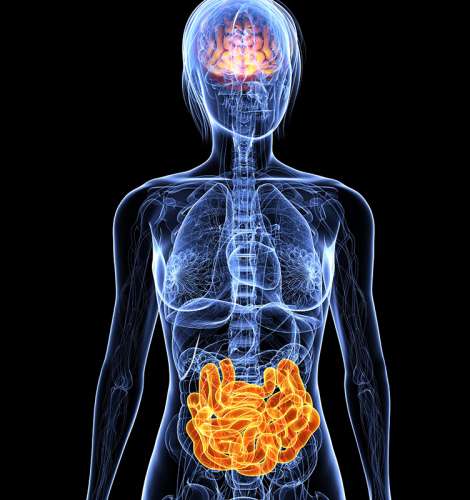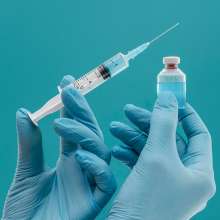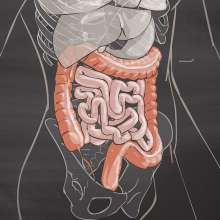Scientists report that gut microbes are needed for appropriate regulation of microRNAs in the amygdala and prefrontal cortex areas of the brain.
MicroRNAs (miRNAs) are building blocks of DNA and RNA that can act to control how genes are expressed (how instructions in DNA are converted into a product, such as a protein).
Changes in miRNAs in these brain regions have been implicated in anxiety and anxiety-like behaviors. This research sheds new light on how gut bacteria may influence anxiety and anxiety-like behaviours. Findings are reported in the open access journal Microbiome.
Background
MicroRNAs (miRNAs) are short sequences of nucleotides (biological molecules). They affect physiological processes in brain regions and in the fundamental functioning of the central nervous system.
Dysregulation or dysfunction of miRNAs is believed to be an underlying factor contributing to stress-related psychiatric disorders, neurodegenerative diseases and neurodevelopmental abnormalities.
Germ free (GF) mice without gut microbes are used in this study. They are reared in a germ-free bubble, and typically display abnormal anxiety, deficits in sociability and cognition, and increased depressive-like behaviors.
The neural circuits that underlie anxiety- and fear-related behaviours are complex and heavily depend on functional communication between the amygdala and prefrontal cortex. Researchers of this study have previously shown that gene expressions within the amygdala and the prefrontal cortex of GF mice are altered.
The research and results
To investigate the link between gut bacteria and miRNAs in the brain, the researchers examined which miRNAs were present in the amygdala and the prefrontal cortex of four groups of animals, each consisting of 10-12 mice or rats.
These groups include: 1/ conventional mice with a normal gut microbiota were used as control for the study, 2/ GF mice without gut microbes, 3/ ex-GF mice that had been colonized with gut bacteria, and 4/ healthy adult rats whose normal microbiota had been depleted with antibiotics.
Results show that a significant number of miRNAs were altered in the brains of GM mice: levels of 103 miRNAs were different in the amygdala and 31 in the prefrontal cortex of the GF mice compared to conventional mice.
For the ex-GF mice, adding back gut microbiome later in life normalized some of the changes to miRNAs in their brain.
Depleting the normal microbiota of healthy adult rats with antibiotics impacted some miRNAs in their brain in similar ways as seen in the GF mice.
This suggests that even in healthy adult rats with normal gut microbiota, changing their microbiota can impact brain miRNAs that are relevant to anxiety and anxiety-like behaviors.
However, the researchers noted that how the gut microbiota is able to influence the miRNAs in the brain remains unclear.
Implications
The findings suggest that a healthy microbiome is necessary for appropriate regulation of miRNAs in the amygdala and prefrontal cortex areas of the brain.
Previous research demonstrated that manipulation of the gut microbiome affects anxiety-like behaviors but this is the first time that the gut microbiome has been linked to miRNAs in the amygdala and prefrontal cortex, according to the researchers.
Modulation of miRNAs in the brain to treat psychiatric disorders is possible but faces many challenges, including the search for safe and biologically stable compounds to cross the blood-brain barrier, and to direct these compounds to act at desired locations in the brain.
The researchers suggest that further research on the link between gut microbes and miRNAs has therapeutic implications for anxiety disorders. They noted that by targeting the gut microbiota, it might be possible to achieve desired impact on miRNAs in specific brain areas.
This study was conducted at the APC Microbiome Institute in Ireland. Funded by Science Foundation Ireland, APC is collaboration between University College Cork, Teagasc (the Irish Agriculture and Food Development Authority) and Cork Institute of Technology. It is an established global centre specializing in research on gut microbes.





